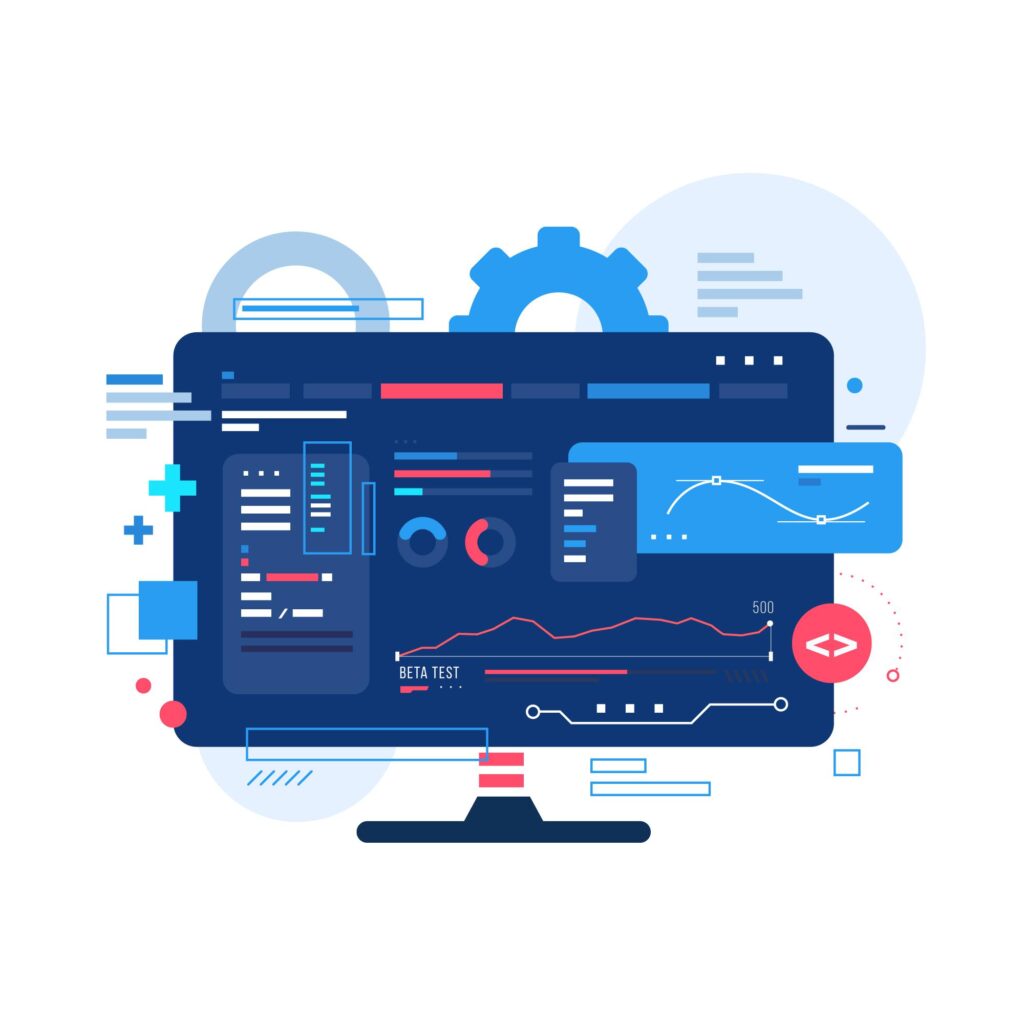In the ever-evolving world of software development, the term “software framework” stands as a beacon of significance. It’s not just a buzzword; it’s the cornerstone of the entire software development process. A software framework is akin to the solid spine supporting the creation of a multitude of applications, including web applications and more.
In this blog post, we invite you to delve into the world of software frameworks and discover their pivotal role in the realm of software development in 2023 and beyond.
What is a Software Framework?
Picture this: you’re embarking on a journey to create exceptional software. At your side is a well-equipped toolbox that contains all the pre-built essentials you need to craft your masterpiece. This toolbox is the embodiment of a software framework. It offers you a foundational structure comprising predefined functions and classes. You can tinker, customize, and extend these elements to suit your project’s unique needs, making your development process as smooth as a summer breeze.
Type of Software Frameworks
Software frameworks come in various flavors, each tailored to specific purposes. Let’s take a glance at a few of these categories:
1. Application Frameworks: Crafted for particular types of applications, such as web applications, mobile apps, or desktop software.
2. Web Frameworks: A specialized breed designed to streamline web application development by simplifying web-related tasks.
3. Open Source Frameworks: Born from the collaborative efforts of a developer community, these frameworks are open to all, often accompanied by thorough documentation and robust community support.
4. Machine Learning Frameworks: An essential player in the age of machine learning and artificial intelligence, these frameworks provide the tools and algorithms necessary for building intelligent software.
The Role of Software Frameworks
Software frameworks don’t wear capes, but they are heroes in their own right. They facilitate software development in myriad ways:
1. Streamlining Development Time: Picture your project as a race car on the development track. A software framework is the pit crew that gets you back on the road in record time by providing pre-built components. This means you spend more time focusing on what makes your project unique and less time writing code from scratch, ultimately reducing errors.
2. The Cross-Platform Marvel: In today’s diverse world of devices and platforms, cross-platform development is a necessity. Many software frameworks, such as React Native, empower you to create applications that gracefully run on multiple platforms using a single codebase. This is a game-changer, especially in the domain of mobile development.
3. Language-Agnostic Flexibility: Software frameworks are versatile, embracing a range of programming languages. This flexibility allows you to work with the language you’re most comfortable with, all while benefiting from the framework’s capabilities.
4. The Open Source Emissary: Open source frameworks are akin to treasure troves, generously sharing resources, tutorials, and community support. For newbies and seasoned developers alike, this wealth of knowledge is invaluable.
Software Frameworks and the Development Process
Imagine the software development process as a symphony. Software frameworks are the skilled conductor ensuring harmony. The process includes:
- Requirements Analysis: Delving into project goals and objectives.
- Design: Molding the software’s architecture and user interface.
- Coding: Translating design into code.
- Testing: Ensuring the software functions flawlessly and squashing any lurking bugs.
- Deployment: Launching the software for eager users.
- Maintenance: Nurturing the software through continuous improvement.
Throughout this orchestration, software frameworks play a crucial role by expediting coding with ready-made modules and libraries, adhering to best design practices, and elevating the overall software quality.
Writing Codes with HTML, CSS, and JavaScript
A foundational trio in web development, HTML, CSS, and JavaScript breathe life into the digital world. They create the structure, style, and interactivity of web applications. Coupled with web frameworks, these technologies open the doors to interactive, dynamic web development, making it accessible to a broader audience.
Why Pick SubcoDevs for Your Software Framework Needs
1. Extensive Knowledge of Software Frameworks: SubcoDevs boasts a team of software framework experts well-versed in web application frameworks to machine learning frameworks. They understand the intricacies of these frameworks and can help you select the one that aligns best with your project goals.
2. Reduced Development Time: SubcoDevs recognizes the importance of time in software development. By harnessing the power of software frameworks, they ensure that your project is completed efficiently and within the stipulated time frame, just as we’ve discussed in this blog.
3. Cross-Platform Development: With the increasing demand for cross-platform applications, SubcoDevs is proficient in using frameworks like React Native to create apps that work seamlessly across various platforms. They understand the significance of reaching a broad audience with your software.
4. Open Source Expertise: SubcoDevs is well-acquainted with open source software frameworks and knows how to utilize the collective knowledge and resources of open source communities. They can guide you in taking advantage of the extensive support available for open source frameworks.
2023 and Beyond: A Glimpse into the Future
As the countdown to 2023 continues, the software framework arena teems with innovation. Notable trends include the soaring importance of mobile development frameworks like React Native, making cross-platform app development more accessible. Open source machine learning frameworks like TensorFlow and PyTorch are set to take center stage, playing a pivotal role in the development of intelligent software applications. Progressive web apps (PWAs) are also on the rise, offering app-like experiences on the web, with frameworks that support PWAs in high demand.
In summary, software frameworks are the unsung heroes of modern software development, streamlining the process, reducing errors, and enabling you to create outstanding software. As we venture into 2023 and beyond, staying updated on the latest software framework trends will be a key to success for developers and businesses alike.
So, when you embark on your next software development project, remember the power of software frameworks. They can save you time, enhance your code, and help you create top-notch software applications. For deeper insights and further information on software frameworks, don’t hesitate to explore the provided references and online resources.

